Getting dental implants is an exciting step towards a restored smile and improved oral health. These nifty little screws, made by leading brands like Straumann®, Nobel Biocare®, and Osstem act as artificial tooth roots, providing a foundation for crowns or bridges. However, the success of dental implants, regardless of the brand, hinges on proper healing following surgery. Here’s where your diet plays a crucial role. Certain foods to avoid after dental implants can hinder the healing process and compromise the implant’s success.
Why Diet Matters After Dental Implant Surgery!
The first few weeks after dental implant surgery are critical for osseointegration. There are a lot of foods to avoid after dental implant because, the process where the implant fuses with the jawbone. This delicate stage requires a gentle touch, both physically and nutritionally. Harsh or demanding foods can irritate the surgical site, delay healing, and even dislodge the implant.
Dental implants are a fantastic innovation, offering a permanent and functional solution for missing teeth. But just like planting a seed in your garden, successful implants require proper care and nourishment to thrive. Here’s why diet matters significantly after dental implant surgery:
The Delicate Dance of Osseointegration:
Following implant placement, your jawbone undergoes a crucial process called osseointegration. This fancy term simply means the implant fuses with the surrounding bone tissue, creating a strong and stable foundation. Imagine the implant as a tiny house needing a solid foundation. A soft diet provides the gentle environment needed for this delicate dance to occur smoothly.
Chewing Force and Healing:
Think of chewing as a physical test for your implant site. Hard, crunchy, or chewy foods require significant chewing force. These foods are the most foods to avoid after dental implant During the initial healing stages, excessive force can irritate sensitive tissues, potentially dislodge the implant, and delay osseointegration. Sticking to a soft diet minimizes this risk, allowing the implant and surrounding bone to heal undisturbed.
Nutrition for a Thriving Implant:
Your body needs specific nutrients to build strong bones and heal tissues effectively. A balanced diet rich in protein, vitamins, and minerals provides the building blocks for a successful implant. While you might crave a steak, opting for softer protein sources like fish, eggs, or tofu ensures proper nourishment without putting stress on the implant site.
- Reduced Risk of Infection:
Certain foods can increase the risk of infection around the implant site. Sugary foods create a breeding ground for bacteria, while acidic foods can irritate the delicate tissues. Avoiding these foods during initial healing minimizes the risk of infection, which can significantly impact implant success.
- Promoting Comfort and Speedy Recovery:
A soft diet and foods to avoid after dental implant promotes overall comfort after surgery. Chewing hard or chewy foods can cause discomfort and pain at the implant site. Sticking to softer options minimizes discomfort and allows you to focus on healing and recovery.
Also Look: Top Dental Implant Companies in the World: A Comprehensive Guide of Top 20 (2024 Edition)
Foods to Avoid After Dental Implants: A Week-by-Week Guide
Knowing which foods to avoid after dental implants can significantly impact your recovery. Here’s a breakdown of what to steer clear of during the first few crucial weeks:
The First 24-48 Hours:
- Solid Foods: Your focus should be on cool liquids like broth, yogurt smoothies, and diluted fruit juices. Chewing can put pressure on the implant site, so stick to a soft diet.
- Hot Beverages: Hot coffee, tea, or soup can irritate the surgical site and cause discomfort. Opt for lukewarm or cool liquids.
- Spicy Foods: Spicy ingredients can cause inflammation and discomfort during this sensitive period. Give your mouth time to heal before introducing fiery flavors.
- Straws: Avoid using straws, as the suction can dislodge blood clots and hinder healing.

Days 3-7:
- Hard Foods: these food are the most important foods to avoid after dental implant. This includes nuts, seeds, raw vegetables, hard candies, and anything requiring significant chewing force. These can put undue stress on the implant site and potentially damage the implant.
- Crunchy Foods: Popcorn, chips, pretzels, and similar crunchy snacks can dislodge food particles around the implant, increasing the risk of infection.
- Chewy Foods: Chewy meats like steak, bagels, and chewy candies require a lot of chewing, which can irritate the surgical site. Opt for softer alternatives like ground meat and mashed potatoes.
- Sticky Foods: Caramels, taffy, gummy candies, and sticky fruits like dates can cling to the implant site, making cleaning difficult and potentially harboring bacteria.
Week 2 and Beyond:
As your mouth heals, you can gradually introduce more solid foods. However, there are still some foods to avoid after dental implants:
- Very Hot Foods: While you can introduce warm foods, avoid excessively hot beverages or soups that can irritate the implant site.
- Acidic Foods: Highly acidic fruits like oranges, grapefruits, and tomatoes can irritate sensitive gums.
- Spicy Foods: If you enjoy spicy foods, reintroduce them gradually. Start with milder options and monitor your mouth for any discomfort.
General Tips for a Smooth Recovery:
Getting dental implants is an exciting step towards a healthier and happier you. But just like any surgery, proper aftercare is crucial for a successful outcome. Here are some general tips to ensure a smooth recovery after your dental implant surgery after we talked about foods to avoid after dental implant:
Minimize Discomfort:
- Pain Management: Your dentist will prescribe medication to manage any post-surgical pain. Take it as directed and don’t hesitate to contact them if the pain becomes unbearable.
- Ice Therapy: Apply an ice pack to the outside of your cheek near the implant site for 15-minute intervals with 15-minute breaks in between. This helps reduce swelling and discomfort during the first 24-48 hours.
- Elevation: Keep your head elevated while sleeping for a few days after surgery. This helps reduce swelling and discomfort.
Promote Healing:
- Soft Diet: Stick to a soft diet for the first week or two after surgery. Opt for foods like mashed potatoes, yogurt, smoothies, and well-cooked vegetables.
- Small Bites: Cut your food into small, manageable pieces to minimize chewing pressure on the implant site.
- Hydration is Key: Drink plenty of water and sugar-free fluids throughout the day to stay hydrated and promote healing.
- Gentle Oral Hygiene: Brushing and flossing are crucial for preventing infection. Use a soft-bristled toothbrush and gentle toothpaste. Be very careful around the implant site and avoid vigorous brushing. Your dentist might suggest using a special mouthwash as well.
Additional Tips:
- Rest and Relaxation: Your body needs time to heal, so prioritize rest and relaxation during the first few days after surgery.
- Avoid Strenuous Activity: Avoid strenuous exercise or activities that could bump or dislodge the implant for the first few weeks.
- Smoking and Alcohol: Smoking and excessive alcohol consumption can hinder healing and increase the risk of infection. Avoid them if possible, or at least significantly reduce your intake during recovery.
- Follow-up Appointments: Attend all scheduled follow-up appointments with your dentist. This allows them to monitor your healing progress and address any concerns you might have.
Managing Post-operative Discomfort:
- Bleeding: Minor bleeding is expected after surgery. Apply gentle pressure to the area with gauze for a few minutes if bleeding occurs. If the bleeding persists or becomes excessive, contact your dentist immediately.
- Swelling: Swelling is a normal response to surgery. It usually peaks within 2-3 days and gradually subsides. Apply ice packs to the area for short intervals (15 minutes on, 15 minutes off) during the first 24-48 hours to minimize swelling.
- Nausea and Vomiting: Nausea and vomiting can be side effects of anesthesia or pain medication. Ginger tea or anti-nausea medication prescribed by your dentist can help alleviate these symptoms.
Returning to Normal Activities
- Strenuous Activity: Avoid strenuous exercise or activities that could bump or dislodge the implant for at least the first week. Gradually resume your workout routine as your dentist advises, starting with low-impact activities like walking or swimming.
- Work and Social Activities: Most people can return to work and social activities within a few days after surgery, depending on the complexity of the procedure and their individual recovery progress.
- Sleeping: Elevate your head with extra pillows for a few days after surgery to reduce swelling. Sleeping on your back is generally recommended to avoid putting pressure on the implant site.
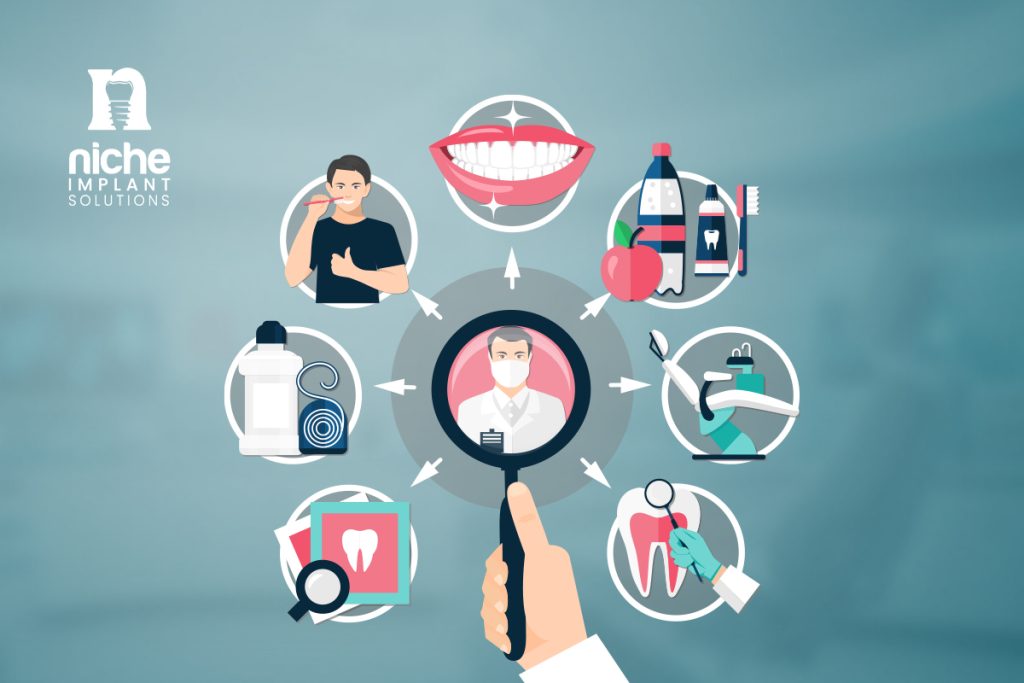
The Importance of Following Your Dentist’s Instructions
While this guide provides a general overview of foods to avoid after dental implants, your dentist’s specific instructions are paramount. They will personalize the dietary restrictions based on your individual case and healing progress. Communicate any concerns or discomfort you experience during the recovery period.
Additional Considerations After Dental Implant Surgery
While general tips and dietary guidelines are essential for a smooth recovery after dental implant surgery,that’s why we talked about foods to avoid after dental implant. There are some additional factors to consider for optimal results.
Smoking Cessation:
Smoking is a significant risk factor for implant failure. Nicotine and tobacco products hinder healing, decrease blood flow to the implant site, and increase the risk of infection. If you smoke, quitting before or shortly after surgery can significantly improve your chances of successful osseointegration (fusion of implant with jawbone). Talk to your doctor about smoking cessation resources and support programs if quitting seems too challenging.
Alcohol Consumption:
While not entirely forbidden, excessive alcohol consumption can impede healing and increase the risk of infection. Alcohol can dehydrate you, hindering the healing process. Additionally, it can interact with pain medication and make you drowsy, potentially affecting your ability to follow post-surgical instructions carefully.
Discuss your alcohol consumption habits with your dentist and the foods to avoid after dental implant. They might advise complete abstinence during the initial healing stages or suggest moderation to promote optimal recovery.
By following these considerations along with your dentist’s specific instructions, you can optimize your recovery and maximize the long-term success of your dental implants. Remember, clear communication with your dentist is key throughout the process. Don’t hesitate to ask questions or voice any concerns you might have to ensure a smooth and successful journey towards a healthier smile.
Conclusion:
Following a proper diet after dental implant surgery is an essential part of the healing process. By understanding the foods to avoid after dental implants, you can minimize discomfort, promote optimal healing, and contribute to the long-term success of your dental implants. Remember to prioritize soft foods, maintain good oral hygiene, and follow your dentist’s personalized dietary advice to achieve a smooth recovery and a confident smile. Visit Niche Dental Solutions website for more dental articles
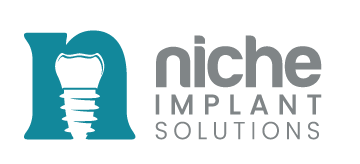

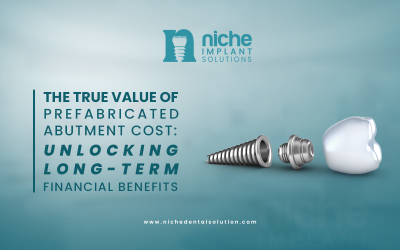
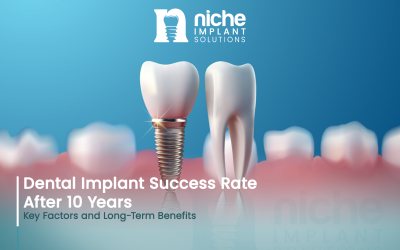
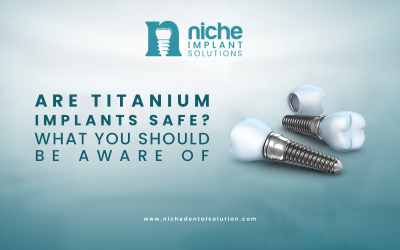
0 Comments